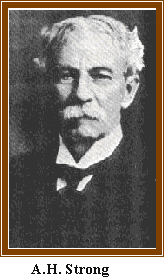A Quote by Saib Tabrizi
The rosary in the hand, repentance on the lips, and the heart full of sinful longings-sin itself laughs at our repentance!
Related Quotes
True repentance is no light matter. It is a thorough change of heart about sin, a change showing itself in godly sorrow and humiliation - in heartfelt confession before the throne of grace - in a complete breaking off from sinful habits, and an abiding hatred of all sin. Such repentance is the inseparable companion of saving faith in Christ.
There are many ways to cover up our sin. We may justify or minimize it by blaming circumstances and others people. However, real repentance first admits sin as sin and takes full responsibility. True confession and repentance begins when blame shifting ends...Just as real repentance begins only where blame shifting ends, so it also begins where self-pity ends, and we start to turn from our sin out of love for God rather than mere self-interest.
Repentance out of mere fear is really sorrow for the consequences of sin, sorrow over the danger of sin — it bends the will away from sin, but the heart still clings. But repentance out of conviction over mercy is really sorrow over sin, sorrow over the grievousness of sin — it melts the heart away from sin. It makes the sin itself disgusting to us, so it loses its attractive power over us. We say, ‘this disgusting thing is an affront to the one who died for me. I’m continuing to stab him with it!’
Be ashamed when you sin, don't be ashamed when you repent [To repent means to have a change of heart and mind. It is not simply a feeling of sorrow ,but a psycho/spiritual growth away from evil/death and a turning to God/life]. Sin is the wound, repentance is the medicine. Sin is followed by shame; repentance is followed by boldness [ Boldness means to beg God for undeserved mercy]. Satan has overturned this order and given boldness to sin and shame to repentance.
Repentance is being sorry enough to quit your sin. You will never know the forgiving mercy of God while you are still wedded to your sins. Repentance is the soul's divorce from sin, but it will always be joined to faithRepentance that is not joined to faith is a legalistic repentanceProfessed faith that is not joined to repentance is a spurious faith, for true faith is faith in Christ to save me not in but from my sin. Repentance and faith are inseparable, and 'unless you repent you will all likewise perish' (Luke 13:3).
Repentance is powerful spiritual medicine. There are few spiritual ills it will not cure. Each sin we leave behind through our faith in the living Christ-both those of commission and those of omission-opens spiritual doors. As we feel the potency of repentance, we better understand why Christ admonished the early missionaries of this dispensation to "say nothing but repentance unto this generation."
Through repentance the filth of our foul actions is washed away. After this, we participate in the Holy Spirit, not automatically, but according to the faith, humility and inner disposition of the repentance in which our soul is engaged. For this reason it is good to repent each day as the act of repentance is unending.
There are still people who insist that we have to preach on repentance. Well, I disagree! I think we should do it God’s way – preach the goodness of God and allow the goodness of God to lead people to repentance. Such repentance will be true repentance. It will not be motivated by the fear of judgment and indignation. It will be a genuine repentance that is motivated by His grace, unconditional love and compassion. After all, our ability to love God stems from our first tasting His love for us.
Repentance grows as faith grows. Do not make any mistake about it; repentance is not a thing of days and weeks, a temporary penance to be got over as fast as possible! No; it is the grace of a lifetime, like faith itself. God's little children repent, and so do the young men and the fathers. Repentance is the inseparable companion of faith.
It is not hateful to say that an immoral action is sinful. On the contrary, the most compassionate thing we can do is help people to turn away from sin. To ignore another person's wrongful actions is a sign of apathy or indifference, while fraternal correction is motivated by love for that person's well-being, as can be seen by the fact that our Lord Jesus himself urged such correction. Indeed, the call to repentance is at the heart of the Gospel, as Jesus proclaimed, "The Kingdom of God is at hand. Repent and believe the Good News" (Mark 1:15).
The poor quality of Christian that grows out of our modern evangelistic meeting may be accounted for by the absence of real repentance accompanying the initial spiritual experience of the converts. And the absence of repentance is the result of an inadequate view of sin and sinfulness held by those who present themselves in the inquiry room.





































